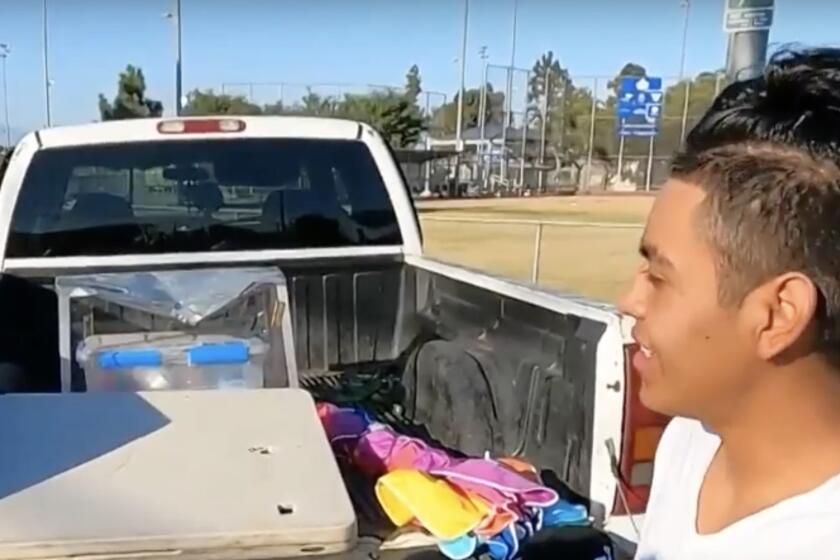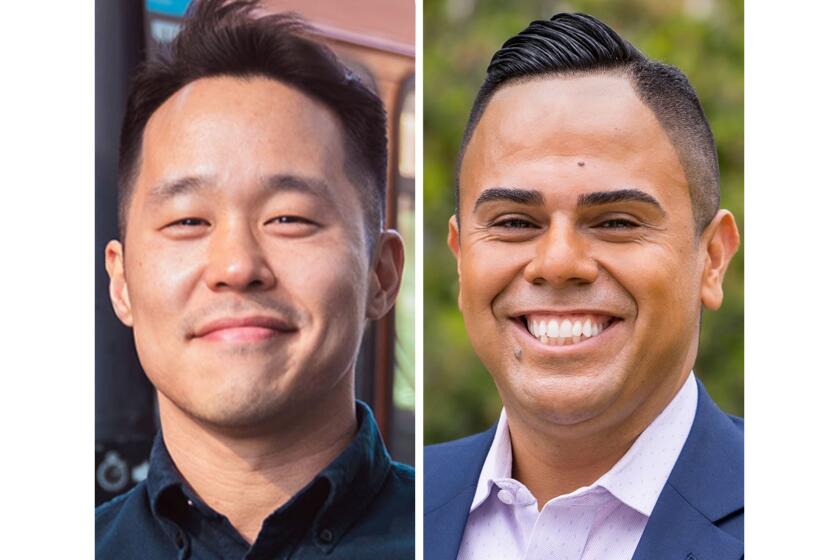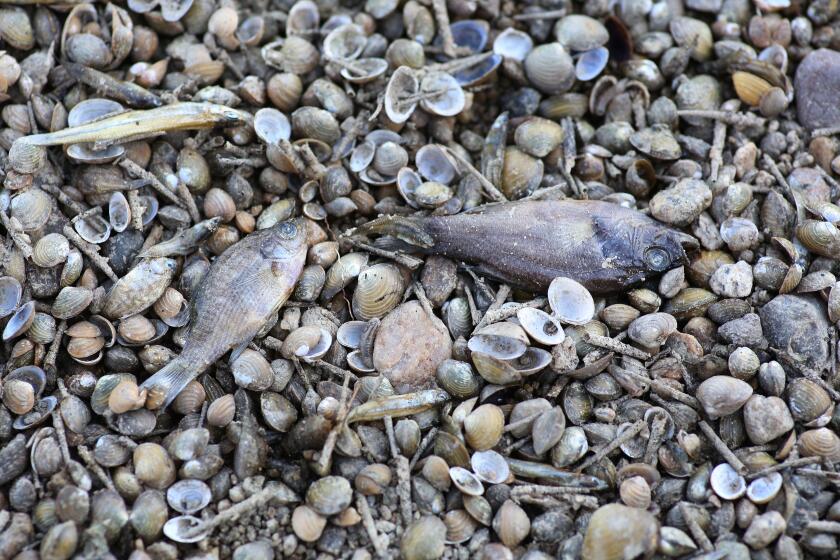Carona jurors told judge of intimidation
Two jurors in the high-profile corruption trial of former Orange County Sheriff Michael S. Carona complained to the judge during deliberations that they felt intimidated and pressured to side with the ex-lawman, according to interviews and jurors’ notes unsealed Wednesday.
The revelations provide a glimpse into the strained and sometimes awkward deliberations that unfolded inside the jury room before the panel returned its verdict Friday and acquitted Carona of five felonies. The former sheriff was convicted of a single count of witness tampering, also a felony.
In an interview Wednesday, Marcia Deatherage -- the lone woman on the federal court panel -- said she was one of the jurors who told U.S. District Judge Andrew J. Guilford that she felt intimidated, and that most of the pressure came from a single juror who she said refused to consider Carona guilty on any of the charges.
“This guy very candidly stood up and said ‘I don’t even know why the government even brought the case,’ ” she recalled Wednesday. “He felt Carona was not guilty of anything. It kind of set a tone for an upset in the jury room. He was kind of a bully. . . . Without him as a juror, I think we would have had more counts we would have found [Carona] guilty on.”
But the jury’s foreman, who asked that his name not be used because of the high-profile nature of the case, said he did not recall any hint of intimidation during the jury’s deliberations. The juror who Deatherage said she found intimidating could not be reached for comment Wednesday.
Carona stood accused of selling the powers of his office for cash and gifts. His chief accuser was one of his former assistants, Don Haidl, who testified that he gave Carona thousands of dollars in casino chips, tailored suits, a powerboat and access to his private planes and yacht. He said he handed over monthly bundles of $1,000 in cash, which prosecutors said Carona used to buy jewelry and to finance liaisons with his mistress, Debra Hoffman. Haidl said he also gave her $65,000 at Carona’s request.
After the verdict was returned, the jury’s foreman said that the panel wrestled with Haidl’s credibility. Several other jurors said they believed Carona was guilty of conspiracy but were constrained by jury instructions and the statute of limitations.
Before they were seated, jurors went through a rigorous selection process designed to weed out anyone who might have a bias or have connections to the former sheriff or anyone else involved in the case. Before adjourning to the jury room, the judge urged the panelists to revisit any potential ties or relationships, and reveal any such information in a note to him.
Deatherage said one of the jurors revealed during deliberations that he and either Carona’s wife or mistress were members of the Screen Actors Guild. Neither Deborah Carona nor Debra Hoffman are known as actors. Deatherage said that she thought the screen actor membership should have been reported to the judge, but that other jurors disagreed, saying that organization’s membership was enormous.
The jury foreman said “there was absolutely no intimidation whatsoever” by any juror. He said a juror did say he was a member of the actors’ guild, but that he did not recall that juror making a reference to Carona’s wife or mistress also being a member.
“Someone else might have heard that,” the foreman said.
Another juror, Jim Ybarra, recalled that it was Hoffman who was identified as a guild member. He also questioned whether the judge was aware that the two individuals were guild members.
The allegations of intimidation in the jury room surfaced two or three days into deliberations, when the judge received separate notes written by one of the male panelists, identified as Juror No. 3. The first note complained that “certain persons who slept all through the presentations, who have not written down one single word in their trial notebooks” have “suddenly come alive and just want to acquit.”
The note went on to say that there was “a juror who wishes to acquit who, I believe, wants to party with Carona and his women.”
The juror also told the judge that “I think I may have been threatened. There are other jurors who feel the way I do.”
The juror who wrote the notes was pulled out of the deliberation room without the rest of the panel’s knowledge and interviewed by the judge about his concerns about being threatened. He ultimately told the judge that he overreacted.
Transcripts of the hearings in the judge’s chambers have yet to be released.
The same juror also wrote a note on behalf of Deatherage, saying she too wanted to speak with Guilford “concerning a matter about your jury.”
Deatherage said she relayed her concerns about “the bully” in the jury room, and another juror who refused to participate in the deliberations. She said she thought the judge might take action and possibly replace the jurors she felt were intimidating or inattentive.
“I really felt that something good would come of it. But I didn’t see anything good come of it,” she said.
Deatherage said Juror No. 3 told her he planned to hold out to the very end, but when the jury voted on the verdict the night before it was announced, he suddenly went along with the majority.
The next morning, she said, he told the panel that he had changed his mind again and planned to stand up in court when jurors were polled and say he disagreed with the verdict.
Minutes before the verdict was announced, Juror No. 3 sent a final note to the judge, asking if he could speak to him privately about jury instructions. The judge sent a note back saying if he had a question, he should go through the jury’s foreman.
The juror foreman said Wednesday that he repeatedly assured the holdout that he didn’t have to go along with the group, and told him the morning before the verdict was announced that “I don’t want you to feel you’re doing this for anyone else.”
Deatherage said she felt Carona was guilty but grew confused by the jury instructions and leaned on more experienced jurors for advice.
The jury’s unanimous decision was read without incident or protest.
--
More to Read
Sign up for Essential California
The most important California stories and recommendations in your inbox every morning.
You may occasionally receive promotional content from the Los Angeles Times.










